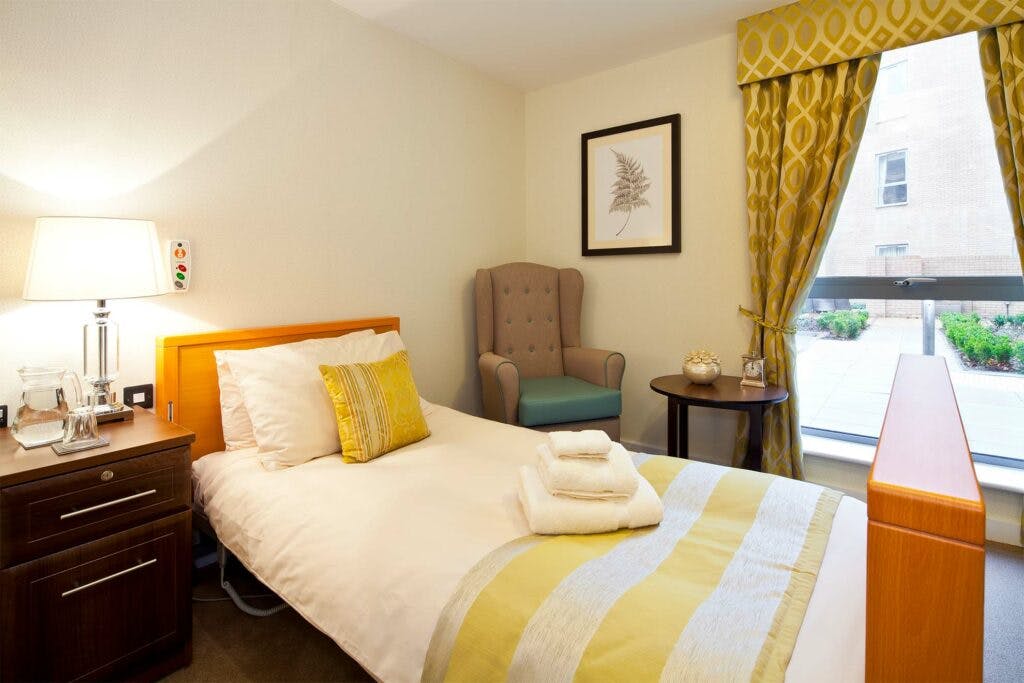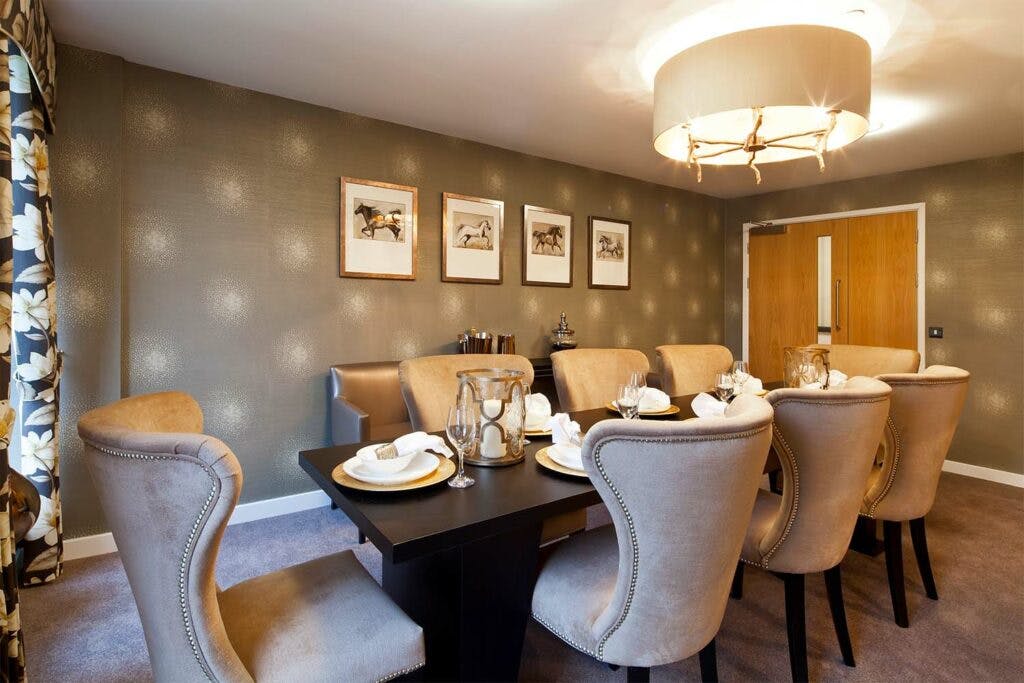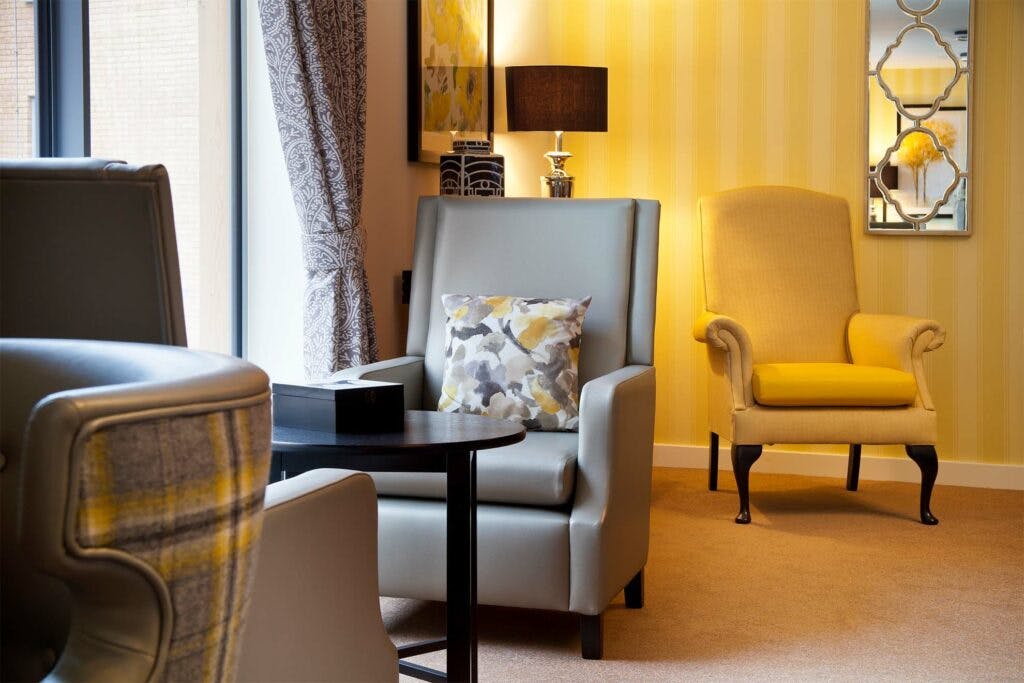How to Get an Elderly Person into a Care Home

As we get older, it's common for the elderly to experience significant changes to overall health, well-being and mental capacity. These changes often lead to a greater need for additional help with daily tasks. Sometimes, it gets to a point where it's no longer possible for a person to continue living in their own homes. This leads to exploring different options for full-time care, such as nursing homes, residential care or dementia care.
Living at home can become a challenging time for both the elderly individual and their family members. A care facility can offer continuous medical and personal support, catering to a wide range of needs that an older person may have. This helps alleviate the stress and concerns that may disrupt their daily routines. Whether you're a family member looking for care for an elderly relative or an individual searching for such care, this blog will outline the important factors for making the transition to a care home in Pontcanna as smooth and stress-free as possible.

Being Open and Transparent About a Move into A Care Home
To ease any negative emotions that an elderly individual might face when provided with the idea of a potential move into a care home, it's vital to have an open conversation with them right away. Accepting the need to transition into a care home and alter their current routine can prove to be a challenging period for not only them but also their loved ones. Initiating an open dialogue even before starting the process can significantly help. As your loved one becomes more comfortable with the idea of this change, it's advisable to arrange several visits to potential care homes. This enables them to familiarise themselves with a care home setting, meet a team and discuss any worries with residents who already reside in a care home.
These visits to care homes also provide an opportunity to voice any concerns that the individuals or their families may have. Whether you're exploring a residential care home or a nursing home, being able to speak to a home manager or even residents living at the home can help make the process less stressful.
Throughout this transitional phase, you should reassure the elderly person who requires care that the option for independent living still exists. The experience of residing in and managing your own home can eventually lead to isolation and the feeling of being overwhelmed, this can make elderly care a great alternative. The presence of around-the-clock support can assist individuals in navigating complex emotions, as all household chores and personal care responsibilities will be managed by the care home staff.
Making Sure Everyone is Involved in the Decision-Making
When it comes to making choices regarding transitioning your beloved family member to a care home, it is important to ensure that they are involved throughout the entire process and participate in any decisions that need to be made. Discussing the benefits of living in a care home with your loved one allows them to embrace the idea of a potential change into a care home or nursing home. It is also really important to honour any wishes that your relative may have and take into account any suggestions they might have, ensuring that they can reside in a care home that can accommodate these preferences.
Involving your loved one in the whole process including visits to potential care homes not only provides reassurance but also helps them with their transition into a care home. In cases where individuals have complex conditions like dementia, it might be necessary to establish a power of attorney to make decisions on their behalf. Nonetheless, even in such situations, try to involve them as much as possible in the decision-making process to avoid stress, anxiety and confusion. By actively engaging your loved one and considering their choices, you can ensure a smoother and more positive experience as they transition into a care home.
Comparing Different Care Homes in the Local Area
Whether you're contemplating a nursing home or care home, conducting thorough research into local care homes is imperative. During this research process, ensure that both you and your relative have established criteria outlining the specific attributes of care homes that align with a person's needs and preferences. These could include particular amenities, opportunities or care services. It is also advisable to check the care home's most recent inspection report will provide valuable insights into the treatment of residents and the quality of lifestyle they receive, from a professional standpoint.
Another effective method of gauging the suitability of a care home is by looking at reviews on platforms such as carehome.co.uk or their Google business profile. This can offer a more comprehensive understanding of whether the care home meets your expectations. Equally important is the consideration of independence within the care home. This factor can grant a sense of purpose upon older individuals while ensuring they have access to comprehensive support when required.
What are the Needs of the Care Seeker?
Every care home and nursing home is different and will provide different care options and facilities. The most important aspect of choosing a care home is to ensure that the health and care requirements of your loved ones are able to be met. Certain care homes may offer a needs assessment beforehand to help provide insights into the specialised care that may be required. Dementia care or nursing care demands varying degrees of support and not all homes are equipped to provide the help or services needed.
As the difficulties of maintaining a home become increasingly challenging and the ability to carry out daily tasks becomes harder, it becomes more favourable to consider the option of a care home. While certain facilities, such as nursing homes, primarily address specific care needs, contemplating an all-inclusive care home could be beneficial if your relative's requirements are susceptible to change.
Different Types of Care & Their Costs
When comparing the expenses associated with relocating to a care home, the UK is generally known for having higher costs compared to other countries in Europe. Due to this, it's vital to comprehend the inclusions within your chosen package and determine whether self-funding is suitable or if a financial assessment is necessary to access additional support from social services.
Typically included within a care package are the care services, accommodation, meals and some activities for the enjoyment of residents. However, it's important to verify with the care home whether any services or facilities come with an additional charge. Some facilities might also offer dental or optician appointments as complimentary services, though this can vary based on the specific care home.
Opting to reside in a care home entails a significant financial commitment, highlighting the importance of devising a comprehensive plan that outlines all associated costs and how these will be financed. If you find yourself uncertain about the expenses and require guidance on funding options, reaching out to a prospective care home would be advisable, as they can provide valuable assistance and information.
Speaking to Health Professionals
While the internet serves as a valuable and credible source of information regarding the process of transitioning an elderly individual into a care home, seeking guidance from a professional can offer even greater reassurance and understanding.
Engaging with someone possessing industry expertise, such as a social worker from the local council or a GP, will have the answers to help you navigate through the journey of transitioning into a care home. Often, a financial assessment is conducted to determine eligibility for funding, through a means test. These care experts are also equipped to address any concerns you or your elderly relatives might have, ensuring that all necessary criteria are fulfilled and that you feel at ease with the chosen facility.
Care homes offer complimentary advice and support to prospective residents and their families, provided by the care home management. This service is particularly beneficial for individuals seeking information about care options and determining the most suitable care approach for their elderly relatives.



Exceptional Levels of Care at Ty Llandaff Care Home
Nestled within the picturesque, leafy suburb of Pontcanna, Tŷ Llandaff Care Residence has 69 en-suite bedrooms, offering residents a relaxing and comforting haven in this serene and scenic part of Cardiff. Our purposefully designed, lavish care facility enables proficient nursing and caregiving teams to deliver unparalleled levels of support for a diverse range of healthcare requirements. Our fundamental philosophy revolves around offering a sumptuous lifestyle and the utmost quality of life to each individual under our care.
Our residential care home offers an assortment of caregiving services, including Residential Care, Nursing Care, Respite Care and Palliative Care. We have made substantial investments in the latest healthcare and accessibility equipment, aiming to uphold first-rate healthcare standards. Our objective is to nurture independence, uphold dignity and ensure a high quality of life for every resident.
Find Out More Today
If you have any questions regarding care homes and how to get an elderly person into a care home, speak to one of our dedicated team members today by contacting them at 02920 600 100 or by emailing info@tyllandaffcare.com.




